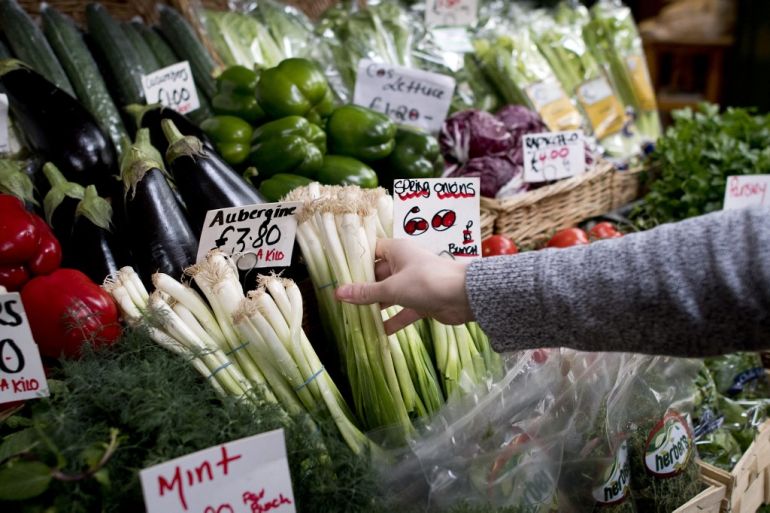Food prices push UK inflation to 40-year high of 9.1 percent
The Bank of England says worse is yet to come as the UK records the highest inflation rate out of the G7 countries.

Rising food prices pushed the United Kingdom’s consumer price inflation to a 40-year high of 9.1 percent last month, the highest rate out of the Group of Seven countries.
Historical records from the Office for National Statistics show May’s inflation was the highest since March 1982 – and worse is likely to come.
Keep reading
list of 3 itemsGerman inflation hit another all-time high in May
Zimbabwe healthcare workers strike over wages, inflation crisis
Sterling, one of the worst-performing currencies against the US dollar this year, fell below $1.22, down 0.6 percent on the day.
Some investors judge the UK to be at risk of persistently high inflation and recession, reflecting its large imported energy bill, and continuous Brexit troubles which could further hurt trade ties with the European Union.
“With the economic outlook so unclear, no one knows how high inflation could go, and how long it will continue for – making fiscal and monetary policy judgements particularly tough,” said Jack Leslie, senior economist at the Resolution Foundation think-tank.
Earlier on Wednesday, the Resolution Foundation said the cost-of-living hit for households had been compounded by Brexit, which had made Britain a more closed economy, with damaging long-term implications for productivity and wages.
Britain’s headline inflation rate in May was higher than in the United States, France, Germany and Italy. While Japan and Canada have yet to report consumer price data for May, neither are likely to come close.
The Bank of England said last week that inflation was likely to remain above 9 percent over the coming months before peaking at slightly above 11 percent in October, when regulated household energy bills are due to rise again.
The British government was doing all it could to combat a surge in prices, finance minister Rishi Sunak said after the data.
Prices for food and non-alcoholic drinks rose by 8.7 percent in annual terms in May – the biggest jump since March 2009 and making this category the biggest driver of annual inflation last month.
Overall consumer prices rose by 0.7 percent in monthly terms in May, the ONS said, a little more than the 0.6 percent consensus.
British factory-gate prices – a key determinant of prices later paid by consumers in shops – were 22.1 percent higher in May than a year earlier, the biggest increase since these records began in 1985, the ONS said.